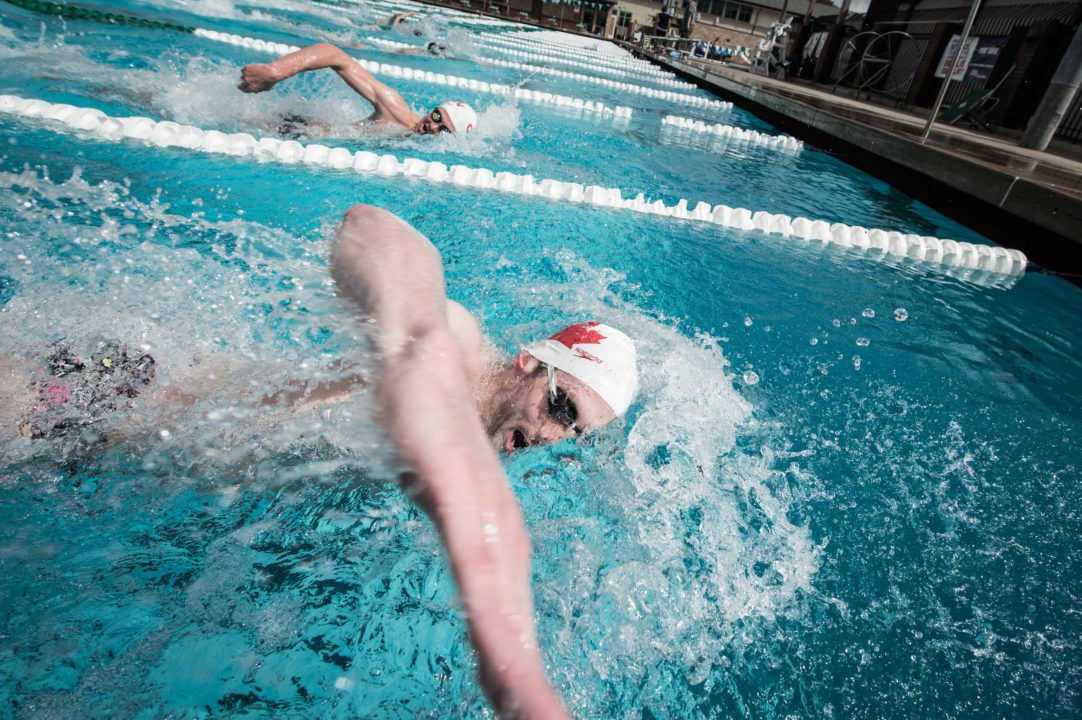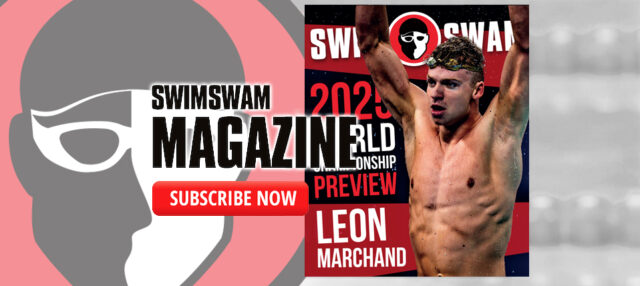The Canadian swim team that competed at the 2010 Commonwealth Games in Delhi included on its roster an Olympic medallist in Ryan Cochrane, a former world champion in Brent Hayden, a former world record holder in Annamay Pierce and several Olympians.
Four years later, Canada’s national swim team finds itself in a transition phase.
The team that will plunge into the pool in Glasgow, Scotland, is sprinkled with some veterans but is largely a young group with many members experiencing their first senior international competition. Eight of the 32 swimmers are under 20 years old and 25 will be competing in their first Commonwealth Games. Swimming at the Commonwealth Games gets underway Thursday, with live coverage on cbcsports.ca/glasgow2014 and daily highlight shows being broadcast on CBC TV.
For many swimmers the Games and Pan Pacific Championships later this summer in Australia are the start of a path that will lead to the 2016 Olympics in Rio de Janeiro and even the 2020 Games in Tokyo.
“This team is having great exposure and opportunity at the Commonwealth Games and Pan Pacs, and will be the backbone of Canadian teams for the next six years,” said John Atkinson, Swimming Canada high performance director.
The changing of the guard is most evident on the men’s team.
Canada sent 13 male swimmers to the 2012 London Olympics. Of those only Cochrane, a two-time Olympic medalist, remains to compete in Scotland. The average age for the Canadian men in London was 25.2 years old. The average age in Glasgow is 20.5.
The women’s team has a little more experience. Nine of the 18 women competing in the Games swam at the Olympics. The average age of the women in Glasgow is 22 years compared to 22.1 at the Olympics.
The 27-member team that went to India returned home with 10 medals, including five gold and one silver. This year’s group has the potential for podium finishes.
“I expect medals,” said Atkinson.
Cochrane, of Victoria, will be looking to defend the two gold medals he won in Delhi. Katerine Savard of Pont-Rouge, Que., is currently ranked third in the world in the 100-m butterfly and heads into Glasgow as the fastest swimmer in the Commonwealth at that distance. She is eighth in the world in the 200 fly.
Hilary Caldwell of White Rock, B.C., won a bronze medal in the 200-m backstroke at last year’s world championships in Barcelona, Spain. Brittany MacLean of Etobicoke, Ont., won two national titles at the NCAA Division 1 Championships and was named the NCAA female swimmer of the year. At the Canadian trials she set a Canadian record in the 800 metres.
Veteran Audrey Lacroix of Pont-Rouge won silver in the 200-fly in Delhi. Martha McCabe of Toronto has battled back from a collarbone injury and can challenge in the 200-m breaststroke. The women’s 4×100 and 4×200 freestyle relay and the 4×100 medley relay also have podium potential.
Canadian swimmers will face some tough competition. Australia will send a team of 46 athletes. Britain, South Africa and New Zealand are also expected to put some of their top talent in the pool.
“It’s right after the worlds,” said Lacroix in rating the Games’ competition. “In the world of swimming there are really big countries at the Commonwealth Games.
“It’s really competitive.”
While medals are important Atkinson is also interested in seeing individuals swim faster times than what they posted at the Canadian Swimming Trials in April. He also wants to see an improvement in their world rankings.
“If they get to the Games and they improve from what they did at the trials, they are going to be in the (medal) mix,” he said.
For young swimmers, the Commonwealth Games offers a learning environment that helps prepare them for an Olympics. They can experience living in a village with athletes from other sports, eating in a cafeteria, and dealing with the distractions of the media.
“It’s a multi-sport event,” said Atkinson. “There are a lot of parts of the Commonwealth Games that really relate to the Olympics.
“When you have your athletes live that lifestyle and then perform at a Games, I think it really does help them on the journey to the Olympics.”
For Emily Overholt and Luke Reilly, the Games will be their first test on a major international stage.
“Just experience is the most important thing right now,” said Overholt, a 16-year-old from Vancouver. “Just being able to swim on a team with some of those really experienced swimmers, it’s a good opportunity for me to learn a lot.
“I want to swim really fast and go best times, but the learning aspect of the summer is really important.”
Reilly, an 18-year-old who attends the University of British Columbia, sees the Games as an education both in and out of the water.
“I would like to leave with a best time,” he said. “I want to learn how to manage myself in the senior national arena. Just to go in and handle the different emotions.”
Swimming News courtesy of Swimming Canada.

